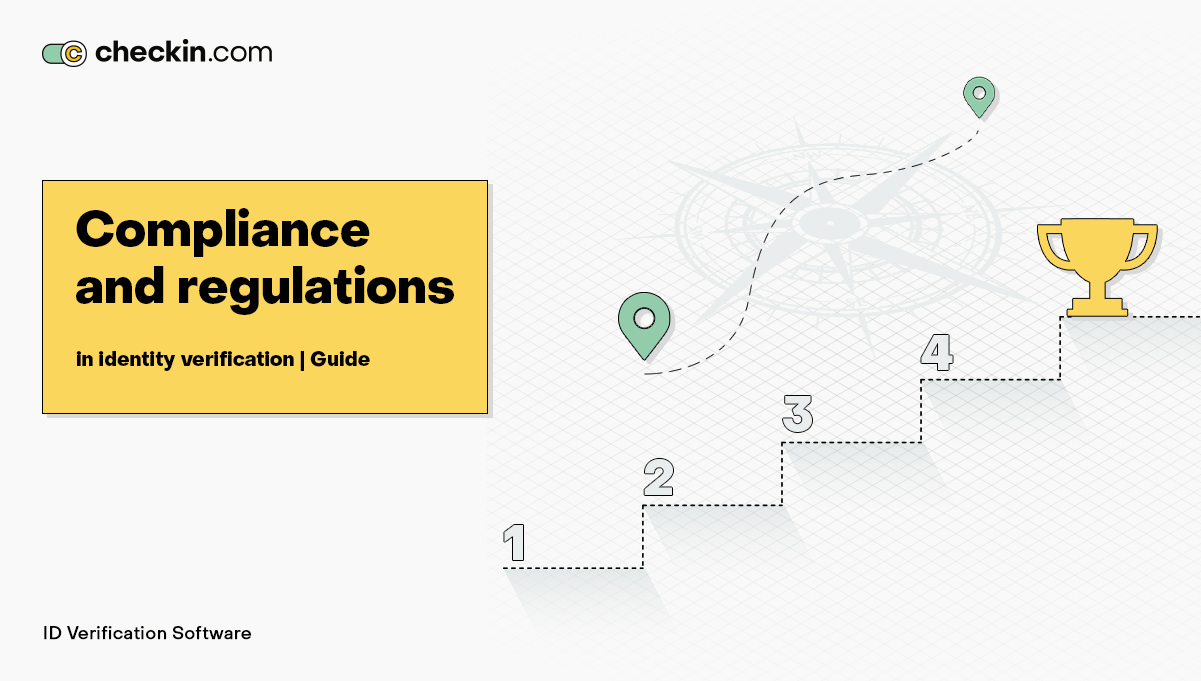
Navigating Compliance and Regulations in Identity Verification
11 Apr 2023
In today’s digital world, personal data protection and compliance with regulations are paramount. As new regulations like GDPR, KYC, and AML laws reshape the identity verification landscape, providers must adapt to ensure compliance while offering security solutions.
In this comprehensive guide, we explore the significance of compliance and regulations in identity verification and how providers can navigate the ever-changing landscape.
The Importance of Compliance and Regulations in Id Verification Service:
- Protecting Personal Data and Privacy:
- GDPR ensures individuals have control over their personal information.
- Compliance builds trust with customers and showcases dedication to data protection.
- Preventing Fraud and Financial Crimes:
- KYC and AML regulations combat financial crimes, such as money laundering.
- Identity verification providers help businesses comply and establish a safer environment.
Adapting to Changing Regulations:
- Continuous Monitoring and Updating:
- Staying informed about regulatory changes is crucial for compliance.
- Proactive adjustments align solutions with evolving requirements.
- Robust Compliance Infrastructure:
- Implementing strict data protection measures and advanced encryption techniques.
- Regular security audits ensure a secure and compliant environment.
Innovative Solutions for Compliance:
- Enhanced Identity Verification Techniques:
- AI and machine learning enhance document verification and biometric authentication.
- Detect forged documents, perform liveness checks, and identify potential risks.
- Streamlined Onboarding Processes:
- Automation and intelligent workflows reduce friction and enhance user experience.
- Integration with data sources enables real-time verification, improving efficiency.
Embracing Evolving Technologies
As the digital landscape continues to evolve, identity verification providers must anticipate the emergence of new technologies and their impact on compliance.
Technologies such as blockchain, decentralized identity, and secure multi-party computation hold the potential to revolutionize identity verification by enhancing security, privacy, and user control. By keeping a pulse on technological advancements, providers can proactively adapt their solutions to align with future compliance requirements.
Global Standardization and Harmonization
With the increase in global transactions and digital interactions, there is a growing need for standardization and harmonization of compliance regulations across jurisdictions.
International organizations, regulatory bodies, and industry collaborations are working towards establishing global frameworks that streamline compliance processes while ensuring data protection and fraud prevention.
Identity verification providers should actively participate in these efforts to contribute to the development of standardized practices and promote a cohesive compliance landscape.
Conclusion
Compliance and regulations play a vital role in the realm of identity verification. Providers must adapt to the changing landscape and offer solutions that comply with regulations like GDPR, KYC, and AML laws.
By prioritizing compliance, staying updated, and embracing innovative solutions, providers can safeguard personal data while delivering secure and seamless identity verification experiences. As technology evolves and new regulations emerge, the importance of compliance will only continue to grow, protecting personal data and preventing fraudulent activities.
FAQ
What is the significance of compliance and regulations in identity verification?
Compliance ensures personal data protection and helps prevent fraudulent activities, establishing trust and a secure environment.
How can identity verification providers adapt to changing regulations?
Providers must continuously monitor regulatory changes, update their processes, and establish robust compliance infrastructure.
What are some innovative solutions for compliance in identity verification?
Advanced technologies, such as AI and machine learning, enhance identity verification techniques, while streamlined onboarding processes improve efficiency and user experience.
What is GDPR, and how does it impact identity verification?
GDPR, or General Data Protection Regulation, is a regulation that protects the privacy and personal data of individuals within the European Union (EU). It affects identity verification by requiring businesses to obtain explicit consent for processing personal data and providing individuals with control over their data.
What is KYC, and why is it important in identity verification?
KYC, or Know Your Customer, refers to the process of verifying the identity of customers to prevent fraud and financial crimes. It involves collecting and verifying personal information, such as identification documents and proof of address, to ensure the authenticity of customer identities.
What is AML, and how does it relate to identity verification?
AML, or Anti-Money Laundering, refers to the laws and regulations implemented to prevent the illegal process of concealing the origins of illegally obtained funds. Identity verification is a critical component of AML compliance as it enables businesses to verify the identities of their customers and identify potential risks or suspicious activities.